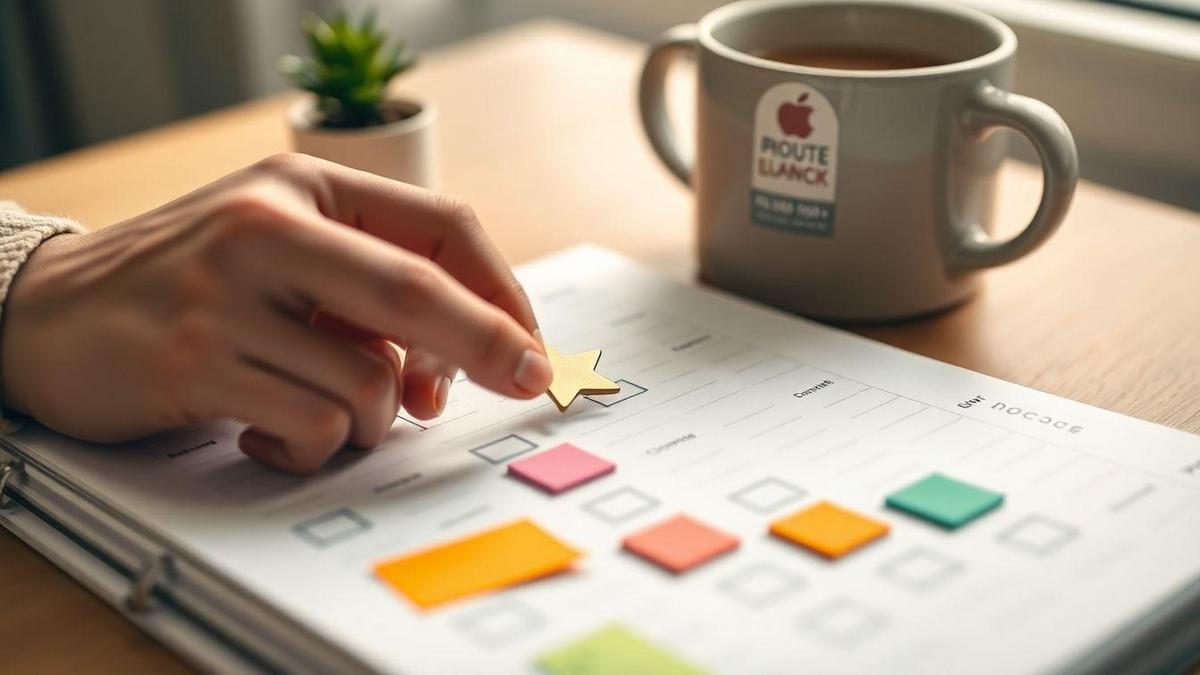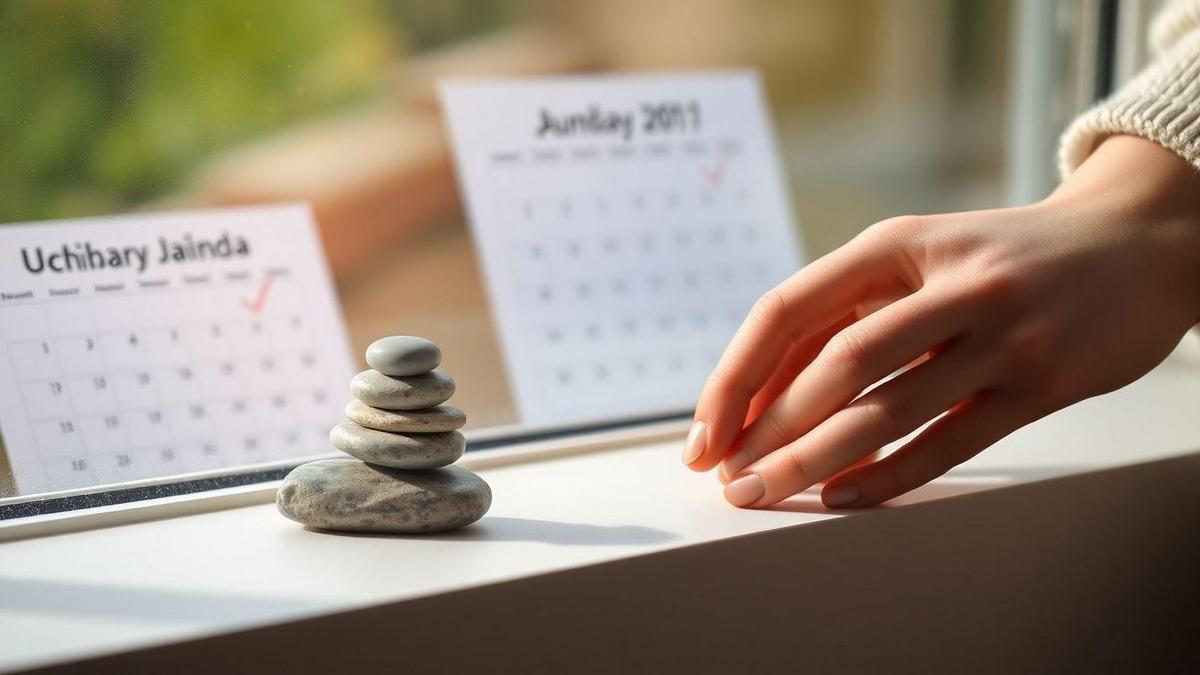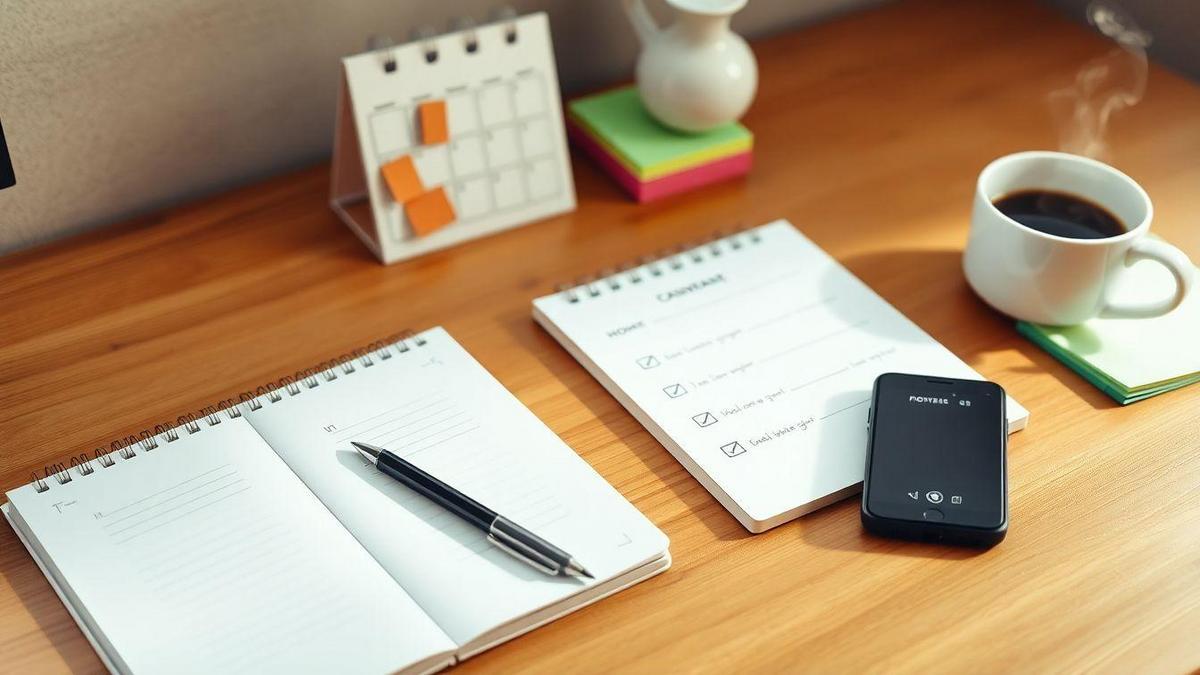Staying motivated when progress feels slow
Staying motivated when progress feels slow is what this guide helps you do. I share practical shifts in mindset, tiny habit strategies, simple tracking methods, and ways to get support so you keep moving even when gains feel invisible. Use these tactics to stay calm, treat setbacks as steps, and build steady momentum. For ideas on making practice enjoyable, consider tips on making practice fun instead of a chore.
Key takeaway
- Pick tiny, finishable steps.
- Record small wins so you can see real progress.
- Take short breaks to recharge and reset.
- Anchor practice to a clear why.
- Ask for help or accountability when you’re stuck.

How I shift my mindset to stay calm and keep going
I treat practice like a slow walk, not a sprint. When things stall I breathe, reset, and pick one tiny step. That keeps me calm and moving. There’s solid research on growth mindset and learning that supports treating setbacks as part of skill development.
See setbacks as normal steps in learning
- Call mistakes signals, not failures.
- Note one thing that went right each session—tiny wins add up.
- Set ultra-small goals: five minutes, one sentence, one scale.
- Take short breaks; a clear head improves practice.
Example: When I stalled on a song, I practiced just two measures. Two days later the whole phrase felt easier — a reminder that small, consistent actions beat perfectionism. If procrastination is a regular blocker, this piece on how to stop procrastinating on music practice has practical fixes.
Use a growth mindset to persist
Talk to yourself like a coach: skill grows with effort, not magic. Say aloud, Staying motivated when progress feels slow is part of learning, then follow a simple routine.
- Pick one process goal (repeat a phrase, write one paragraph).
- Track time/reps—numbers calm me.
- Celebrate small gains with a note or quick reward.
- Adjust approach if stuck (tempo, method) and repeat tomorrow.
A quick story: I learned a tricky chord by practicing ten seconds at a time on the bus. Those tiny bits became real progress — understanding basics helps; read more on what chords are and why they matter.

Celebrate tiny wins
Think of staying motivated when progress feels slow like keeping a small campfire alive—add tiny twigs often. Those twigs are mini wins that stop you from feeling stuck. This idea reflects research on small wins and motivation.
Track small wins to boost mood
- Keep a simple habit log or sticker jar—one click, one sticker.
- Write one line in a progress note each day: what you did, not what you didn’t.
- Mark streaks on a calendar; a red X feels satisfying.
- Share one small win with a friend for an instant mood lift.
Example: Learning a new chord felt easier when I put a sticker on my guitar case—next-day practice followed naturally.
Celebrate micro-progress to build momentum
Micro-progress is like a snowball.
- Say Nice! aloud or clap after a small win.
- Do a 2-minute celebration: stretch, sip coffee, or dance.
- Set micro-goals: play this riff cleanly twice, not master guitar.
- Keep a running list of tiny wins to read later.
My experience: Celebrating tiny steps made practice fun again and built steady momentum. For more ideas to keep sessions playful, see ways to make practice feel less like a chore.
Reward steps, not just milestones
- Small rewards (5–15 minutes): snack, song, short walk.
- Bigger rewards for longer runs: a book, a meal, or new gear.
- Use a ratio (e.g., three steps = one bigger reward) and keep rewards honest.
Build habits that outlast slow progress
Treat practice like saving pennies—small actions pile up. When pace worries you, focus on clear, tiny moves that are easy to repeat. Try practical steps for forming new habits to structure gradual change.

Make small daily actions that add up
- One minute of focused practice beats an hour of distracted effort.
- Track wins with tick marks to build momentum.
- Choose specific, simple tasks: one scale, one sentence, one drill.
If you want a structured cadence to follow, the power of just twenty minutes daily shows how modest, consistent blocks can deliver big results.
Use cues and routines to make habits stick
- Anchor practice to an existing habit: after breakfast, before bed.
- Keep your space ready (visible notebook or instrument).
- Make a short routine: warm-up, main task, quick reflection.
- If you miss a day, do a tiny catch-up rather than skipping more.
A practical guide to designing that short routine is available at how to create a simple practice routine.
Start tiny and increase slowly
- Day 1–7: 5 minutes or one small item.
- Week 2–4: add 2–5 minutes or a second item.
- Month 2: increase only when the shorter habit feels easy.
- If you miss two days, cut time in half for a few days and rebuild.
If starting feels intimidating, strategies in overcoming the fear of starting music can help you begin with confidence.
Measure progress in simple, visible ways
Big goals can feel like mountains. Break them into tiny steps you can check off—this is a simple feedback loop: do, record, smile, repeat. You might also find advice on how to set effective SMART goals useful when choosing what to track.

Use clear, easy metrics
Pick a few metrics that match the skill:
- Time spent (minutes per session)
- Reps or items (drills completed)
- Accuracy (errors per run)
- Speed (tempo or words/minute)
- Comfort level (1–5 confidence score)
Example: For guitar I note minutes, clean repeats, and a confidence score—three numbers that reveal real change. If you track musical elements like scales or technique, see scales explained in plain English.
Review weekly to spot slow gains
A 10-minute weekly check-in prevents setbacks from feeling like failure.
- Compare five metrics week-to-week.
- Mark one clear win.
- Pick a focus for next week and adjust time if needed.
- Celebrate a small reward after review.
Keep a short log or checklist
A simple log: date, session length, one metric result, one note. Proof, not perfection. When doubt creeps in, scan the log—the evidence of progress is motivating.
Practice patience and persistence
Progress is often invisible at first—think of planting seeds. Patience, clear timeframes, and steady habits are your tools.

Set realistic timeframes
Ask: What can I expect in 1 week, 1 month, 6 months? Write those down and avoid tight deadlines that create stress.
Break big goals into patient steps
- Split the goal into tiny, repeatable tasks.
- Use micro-deadlines: one week for basics, one month for simple results.
- Check progress weekly and tweak the plan.
If you wonder how much comes from practice versus talent, this discussion on talent vs. practice puts effort into perspective.
Handle discouragement with facts and routines
Name the feeling, use evidence, and take short resets to clear the fog. For reliable, practical wellbeing strategies, see practical tips to improve wellbeing.

Name the feeling and use facts to calm down
- Say the feeling out loud: I’m frustrated or I’m stuck.
- Look at your log or a short recording—concrete proof helps.
- Breathe for 30 seconds to slow your mind.
Example: Watching a clip from two weeks earlier showed tiny improvements and cooled my frustration.
Compare to your past self, not others
- Record a short clip each week and note one improvement.
- Use your timeline as the scoreboard; pros’ timelines aren’t your path.
- This habit helps with staying motivated when progress feels slow.
Use short breaks and reset plans
- Take a 5–10 minute walk or do something fun for 10 minutes.
- Have a reset plan: one warm-up, one focused 5-minute drill, one cool-down.
- If stuck for multiple sessions, drop difficulty and focus on clean execution.
If you want music to help clear your head and reframe discouragement, read about music as therapy and the mental benefits of playing.
Design a routine that supports slow progress
Treat practice like an appointment with your future self. Habit, manageable challenge, and fun keep you consistent.

Pick fixed practice times
- Choose a time that fits your energy and stick to it for 2–3 weeks.
- Use a short trigger (finish dinner, brush teeth) to start.
- Keep sessions short initially: 10–20 minutes.
Balance challenge and rest
- Aim for the sweet spot: just out of reach but doable.
- Use two hard, one easy across a week.
- Watch for burnout signs and rest when needed.
Sample session plans:
- 15 minutes: 3 min warm-up, 10 min focused, 2 min reward.
- 30 minutes: 5 min warm-up, 20 min focused split, 5 min cool-down.
- 60 minutes: 10 min warm-up, 40 min split, 10 min fun play.
If you need help selecting what to practice within those blocks, how to create a simple practice routine offers straightforward templates.
Long-term motivation techniques
Staying motivated when progress feels slow is weekly work. Treat it like gardening: small, steady steps lead to a harvest.

Connect daily work to a clear why
- Write one sentence that captures your why and place it where you see it.
- Say it out loud before practice.
- Link each small task to that why (This scale builds my hands for that song.)
If your why involves emotional or personal goals, explore how music connects to memory and feeling in the link between music and personal memories.
Set milestone dates and collect proof
- Pick horizons: 4 weeks, 12 weeks, 6 months.
- Define a simple metric and schedule check-ins.
- Record audio or video as proof—comparing month 1 to month 3 is powerful.
Imagine future benefits
Use quick mental pictures: the smile when you play a song, ordering food in another language. Tape a short future-me note to your space to reignite motivation.
Get support and accountability
Accountability is a safety net. Telling someone your plan and checking in makes you more likely to follow through.

Tell one person your goal
- Pick someone who will ask about progress and set a simple check-in (text, emoji, or call).
- Give them permission to remind you gently.
Example: I told a friend I’d study 20 minutes daily; her nightly text keeps me honest. If 20 minutes fits your schedule, see why short daily blocks work.
Join groups or find a buddy
- Try local classes, forums, or apps and observe for a week.
- Pair with someone at a similar level or slightly ahead.
- Agree on a check-in rhythm: daily, weekly, or after sessions.
Ask for feedback and celebrate with others
- Ask one specific question: What can I fix in this short clip?
- Prefer one or two actionable tips.
- Share progress and celebrate tiny wins publicly.
Feedback turns blind spots into next steps; celebration turns effort into joy.
Conclusion
Small, steady moves win the long game. Treat progress like a campfire—add tiny twigs (tiny wins) and the flame keeps going. Use a growth mindset, clear habits, simple metrics, and a routine tied to your why. When you stall, breathe, name the feeling, and check the log. If you’re stuck, do one tiny action now: five minutes, log it, smile. These small chains create real change.
Want focused templates and short daily plans? See practical examples at how to create a simple practice routine.
Want more bite-sized tips? Read more at https://clickneutro.com.
Frequently asked questions
Q: Staying motivated when progress feels slow — what quick tip helps?
A: Set tiny goals and celebrate one small win each session.
Q: How do I quiet doubt when progress feels tiny?
A: Track one small win daily, reread your why, and focus on the next tiny step.
Q: When I feel stuck, what simple habit gets me moving?
A: Do one 5-minute task—short action builds momentum.
